Budgies, also known as budgerigars or parakeets, are social birds that thrive on companionship and interaction. As highly intelligent creatures, they require mental stimulation and socialization to lead a happy and fulfilling life. Unfortunately, loneliness can be detrimental to their well-being.
The signs of a lonely budgie include excessive vocalization, aggressive behavior, and feather picking. Other common signs include loss of appetite and self-isolation.
Let’s dive in and find out the signs of a lonely budgie. We will also discuss whether budgies enjoy being alone, and provide guidance on how to prevent loneliness in these beloved pets.
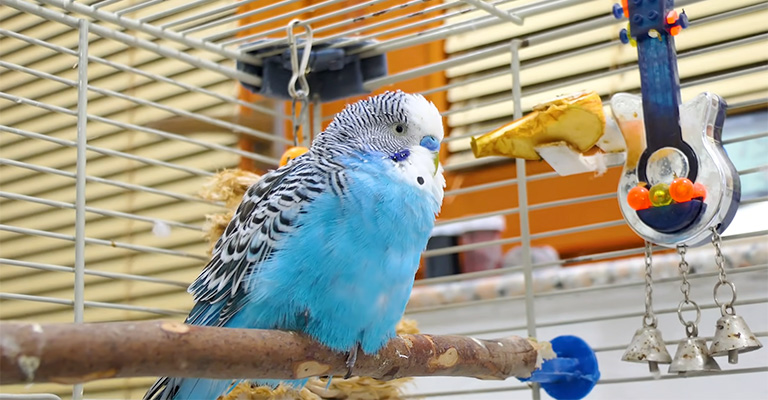
How to Tell If Your Budgie Is Lonely?
Just like other pets, budgies also show the symptoms of loneliness. If your bird gets lonely, it will display the following signs.
Excessive Vocalization
Lonely budgies may exhibit heightened vocalization in an attempt to seek attention. They may chirp, squawk, or mimic sounds to express their desire for companionship. If your budgie’s vocalizations are persistent, it could be a sign of loneliness.
Feather Picking
When budgies are lonely, they may resort to feather picking as a means of self-soothing. They pluck their feathers out of frustration and boredom. If you notice bald patches or feather destruction on your budgie, it is likely a manifestation of loneliness.
Lethargy
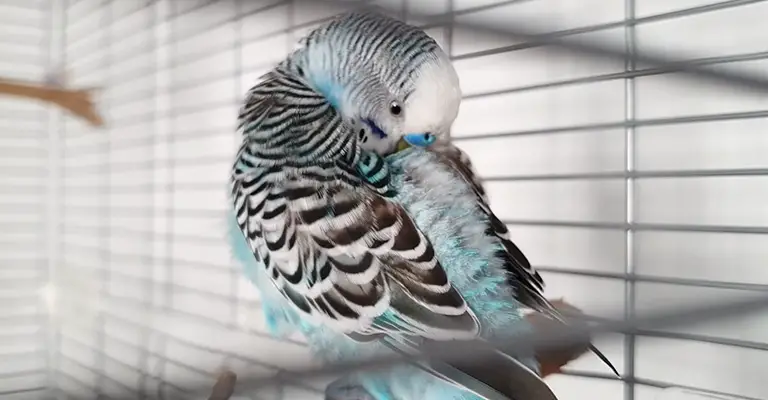
Lonely budgies often appear lethargic and lack energy. They may spend prolonged periods perched in one spot without engaging in their usual playful activities. This lack of enthusiasm is a clear indicator that your budgie is feeling lonely.
Aggressive Behavior
A budgie deprived of companionship may display aggressive behavior towards humans or other birds. They might bite, lunge, or show signs of territoriality. These actions are often a result of frustration and an attempt to establish control in their solitary environment.
Excessive Sleeping
Loneliness can also lead to excessive sleeping patterns in budgies. They may sleep for extended periods throughout the day, as they find solace in sleep to cope with their loneliness. Keep an eye on your budgie’s sleep habits and note any significant changes.
Loss of Appetite
Lonely budgies may experience a loss of appetite. They might show disinterest in their food and water, resulting in weight loss and malnourishment. If your budgie’s eating habits have drastically changed, it could be a sign of loneliness.
Feather Fluffing
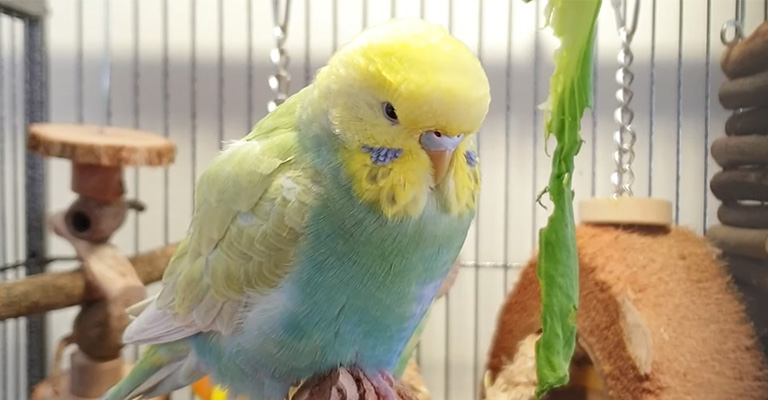
Another common sign of loneliness in budgies is feather fluffing. When they feel lonely, they fluff up their feathers in an attempt to make themselves appear larger and seek comfort. Pay attention to any unusual feather fluffing behaviors in your budgie.
Attention-Seeking Behavior
When lonely, budgies may engage in attention-seeking behavior such as head-bobbing, dancing, or clinging to the cage bars. These actions are their way of trying to garner attention and find companionship. If your budgie displays persistent attention-seeking behavior, it is likely due to loneliness.
Self-Isolation
In some cases, budgies may isolate themselves from human interaction and other birds when they are lonely. They may spend extended periods huddled in a corner of their cage, avoiding social interaction altogether. This withdrawal is a clear indication of their loneliness.
Do Budgies Like Being Lonely?
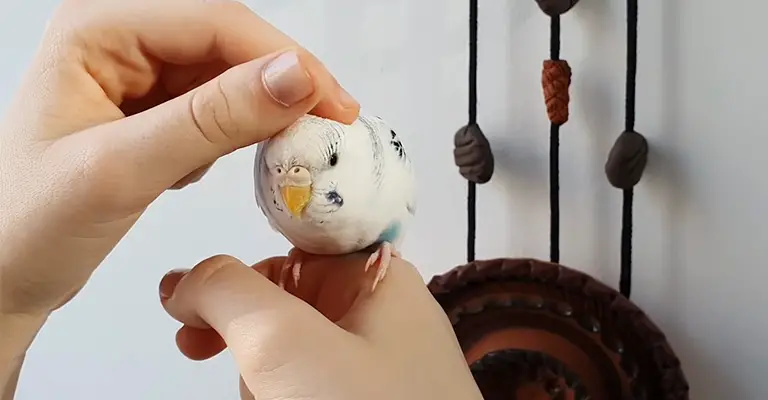
No, budgies do not enjoy being lonely. As social creatures, they thrive on companionship and interaction. Budgies in the wild stay in flocks and constantly communicate with each other. Loneliness can lead to a decline in their mental and physical well-being. Here are some reasons why budgies dislike being alone:
Social Stimulation
Budgies are highly intelligent and social birds. They require mental stimulation and social interaction to remain happy and healthy. Without companionship, they can become bored, leading to behavioral issues and a decline in overall well-being.
Mimicking Behavior
As you might know, budgies are known for their ability to mimic sounds and learn from their surroundings. When they are alone, they lack the stimulation and learning opportunities that come from observing and interacting with other birds and humans.
Emotional Support
Companionship provides budgies with emotional support. They can experience stress and anxiety when isolated, leading to behavioral problems and even physical ailments. Having a companion can alleviate these negative emotions and provide comfort.
What to Do If My Budgie Is Lonely and Sad?
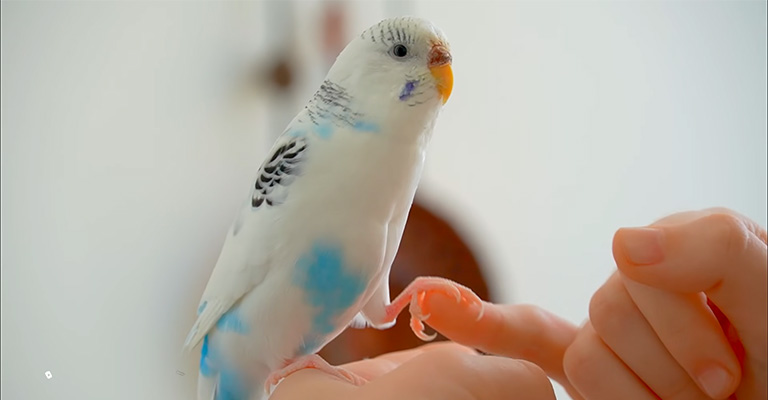
If you suspect that your budgie is lonely and sad, there are several steps you can take to address the issue and improve their well-being:
Provide Companionship
Consider getting another budgie as a companion for your lonely budgie. Introduce them gradually and ensure they get along well. Having a fellow budgie to interact with can significantly reduce loneliness.
Increase Social Interaction
Spend quality time with your budgie by talking, playing, and teaching them tricks. Create a bond through positive reinforcement training. Ensure your budgie has plenty of out-of-cage time to explore and interact with you in a safe environment.
Enrich the Environment
Enhance your budgie’s living space with toys, perches, and stimulating activities. Rotate toys regularly to keep them engaged and prevent boredom. Provide natural branches for perching to simulate their natural habitat.
Play Nature Sounds
Playing nature sounds or budgie vocalizations can help provide auditory stimulation for your lonely budgie. The sounds of other birds can give them a sense of companionship and create a more natural environment.
Offer a Balanced Diet
Ensure your budgie receives a balanced diet rich in fresh fruits, vegetables, seeds, and pellets. A nutritious diet plays a vital role in their overall health and can positively impact their mood and well-being.
Arrange Playdates
When getting another budgie is not possible, consider arranging playdates with other budgie owners. This allows your budgie to interact with other birds and provides them with socialization opportunities.
Consult a Vet or Avian Specialist
If your budgie’s loneliness persists or their behavior becomes concerning, consult a veterinarian or avian specialist. They can assess your budgie’s health, behavior, and offer further guidance on addressing their loneliness.
FAQs
Can I keep a single budgie if I am unable to get another one?
While it is preferable to have a companion for your budgie, if you are unable to get another bird, you can still provide social interaction and stimulation through spending quality time with them, offering toys and enrichment, and arranging playdates with other budgies.
How long can budgies be left alone?
Budgies should not be left alone for long periods as it can lead to loneliness and boredom. They require daily interaction and mental stimulation. If you need to be away, ensure someone can provide socialization or consider hiring a pet sitter.
Can budgies bond with humans?
Yes, budgies can form strong bonds with their human caregivers. Regular interaction, positive reinforcement training, and spending quality time together can help develop a bond of trust and companionship.
Can older budgies get lonely too?
Yes, older budgies can experience loneliness just like younger ones. It is essential to monitor their behavior and provide appropriate socialization and enrichment, regardless of their age.
How long does it take for a budgie to adjust to a new companion?
The time it takes for a budgie to adjust to a new companion can vary. It may take a few days to several weeks for them to establish a bond and become comfortable with each other. Patience and gradual introductions are key.
Final Words
Recognizing the signs of a lonely budgie is crucial for their well-being. By providing companionship, social interaction, and a stimulating environment, you can help alleviate their loneliness and ensure they lead a happy and fulfilling life.
Remember, your budgie relies on you for their social and emotional needs, so prioritize their companionship and take the necessary steps to keep them content and thriving.